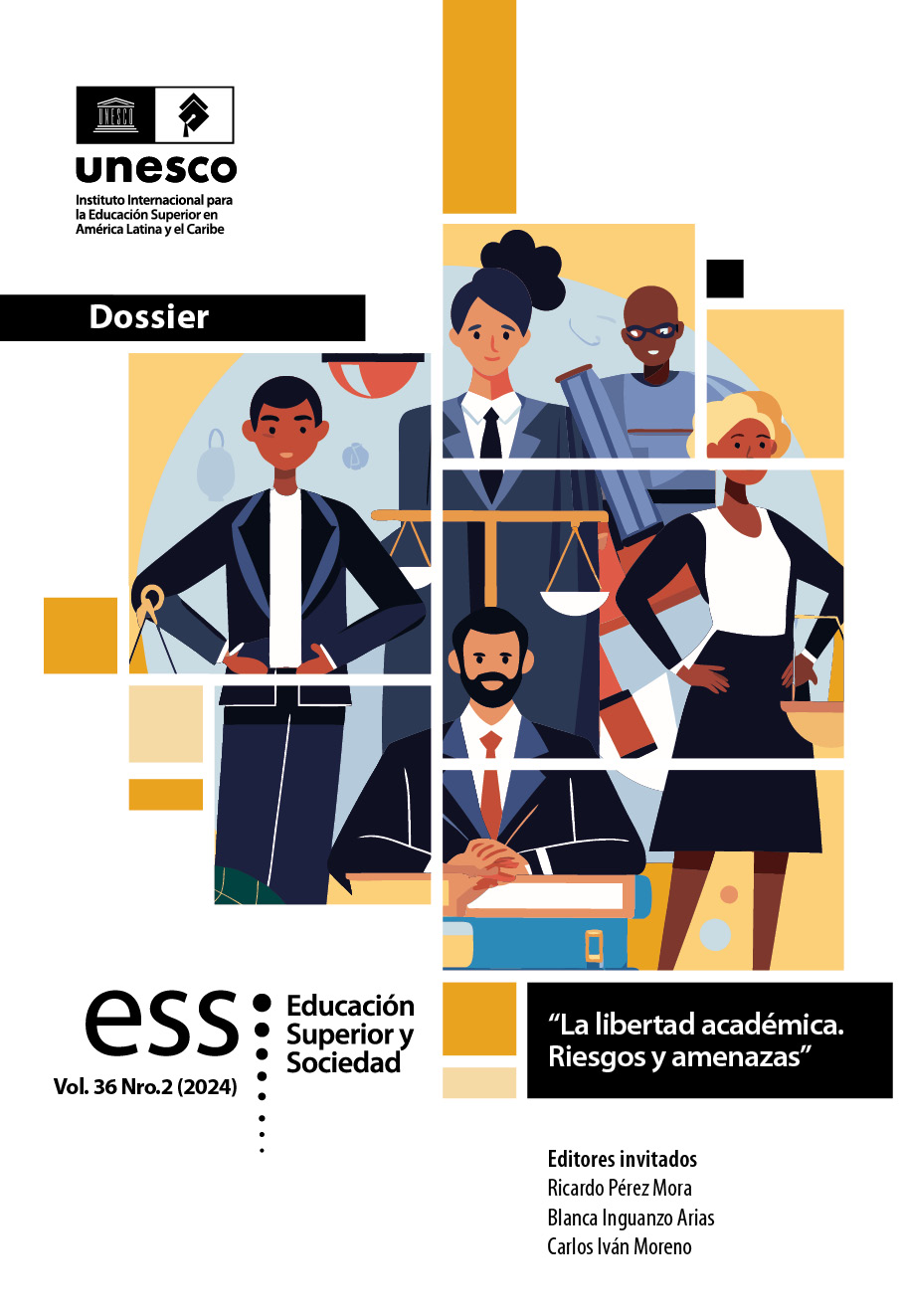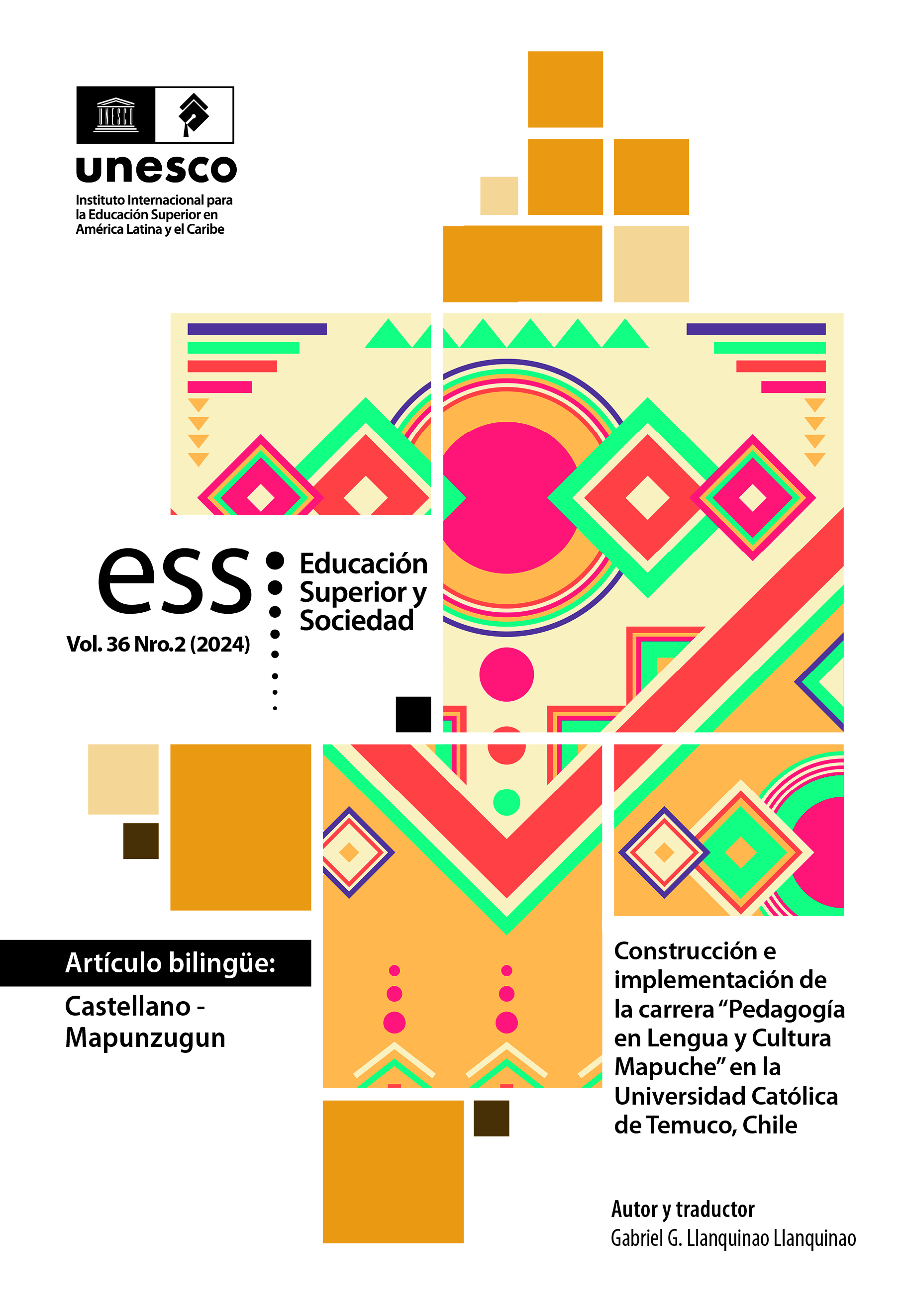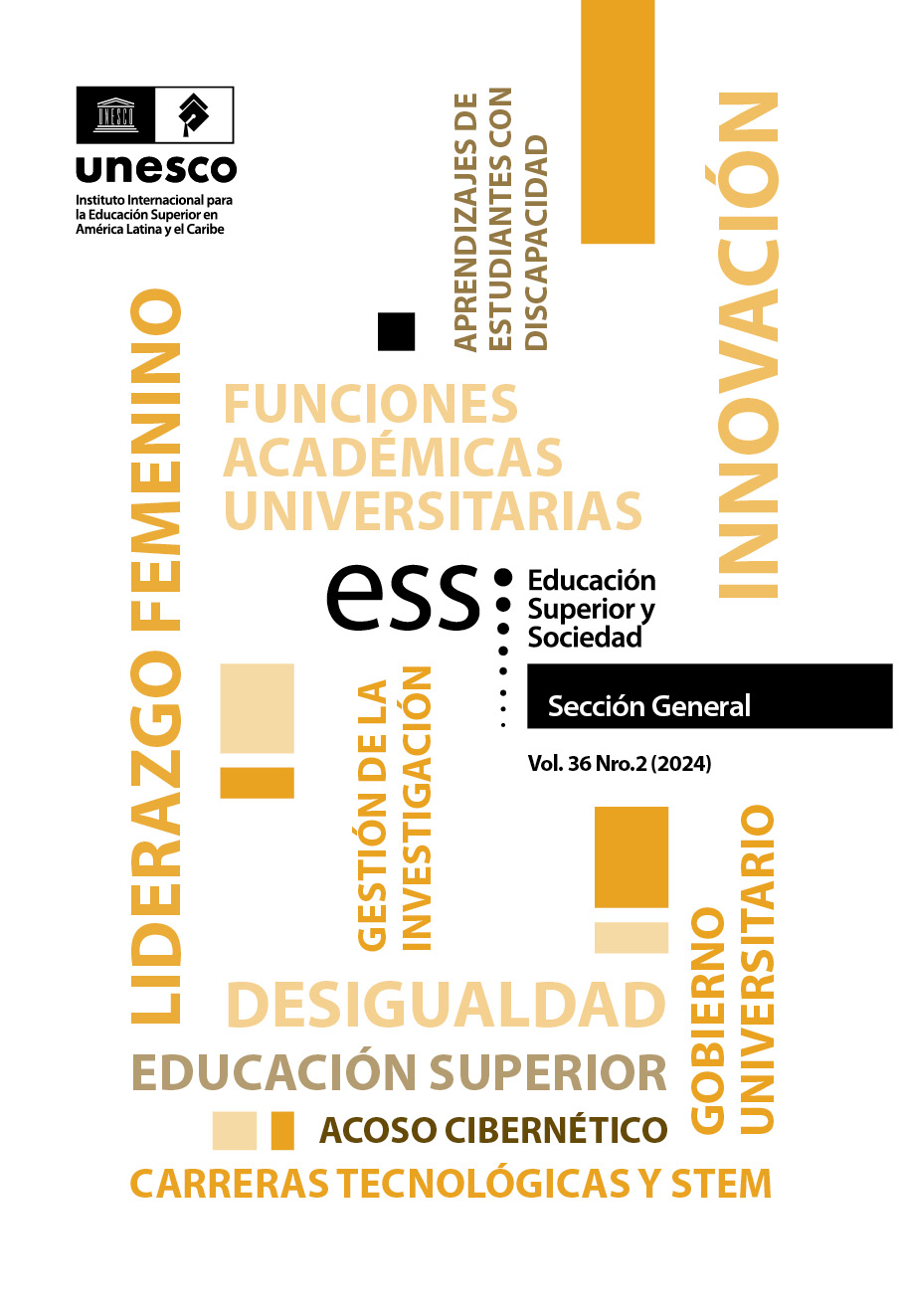

This issue of ESS explores controversies and debates surrounding academic freedom from diverse perspectives, including case studies, theoretical analyses and critical reflections; it also examines the state of academic freedom in our institutions of higher education and the implications it has for the future of higher education and research. The articles in the thematic dossier invite reflection on academic freedom, understood as the right to teach, research and express oneself, which has been a fundamental principle for the development of higher education. It is understood that the concept, which was taken for granted in many regions of the world, today faces growing challenges and the most recent data from the Index of Academic Freedom reveal that current levels of university freedom in the world have regressed: to parameters similar to those recorded 50 years ago. In the case of the general section, the articles mainly address three themes: inclusion and equity, teacher training and professional development, and institutional governance, which reflect the complexity that exists within institutions, but also the trends that have remained in force over the last few years at the local, regional and global levels. Finally, the bilingual article with translation into the language of Mapuche native peoples, addresses the results of a process of co-construction of a career in a university in central-southern Chile, exposing the results of the participatory contextual diagnosis carried out.





